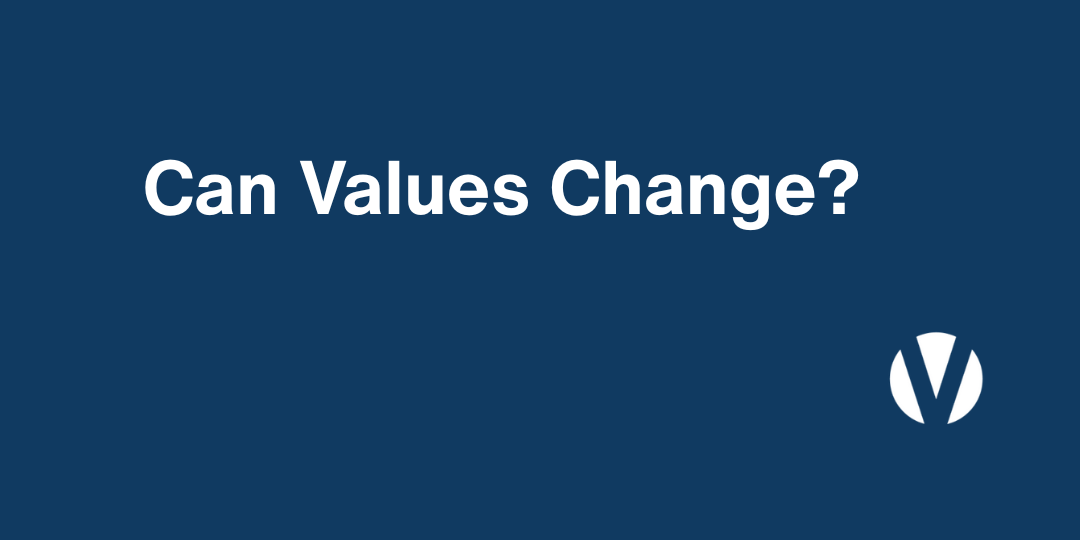Can Values Change?

Understanding the Stability, Flexibility, and Contextual Nature of Values
One of the most frequently asked questions we receive at the Values Identifier is, "Can values change?" It's a fascinating question because the answer lies at the heart of understanding values from a sociological perspective. The sociological viewpoint emphasizes how a person's values are shaped through interactions with others and the broader social environment. Values guide how people navigate life. They influence their decisions, behaviors, and motivations, as well as shaping how people perceive and engage within different contexts.
Through the extensive research undertaken by the Valuegraphics team, researchers observed something powerful and consistent: people's personal values—their drivers of decisions, behaviors and motivations—remain remarkably stable throughout their adult lives. In other words, once your values are established, they rarely shift. Once you value something; you most likely value it for life.
But here's where things get interesting. While the values themselves don't often change, the ways we prioritize and express these values certainly can.
Major life events, such as marriage, parenthood, career transitions, or the loss of a loved one, can profoundly affect which values we emphasize at any given moment. Similarly, changes in our environment such as moving to a new city, adapting to a different workplace culture, or facing economic shifts can prompt us to reprioritize how we apply and express our values. It is most likely that, in these situations, the values a person had before the major life event are still their values, yet a shifted focus or prioritization can hide some values or promote others higher in importance for a period of time.
Even subtler shifts in our personal context, like growing older or evolving relationships, can lead us to reinterpret and express our values differently over time. Each of these scenarios underscores that while our values can provide us a stable foundation, their practical influence on our lives remains fluid, responsive, and adaptable to our ever-changing circumstances.
Something that’s also important to consider is that values can manifest differently depending on context. For example, someone who deeply values Family may demonstrate this in distinct ways based on their current environment. At home, Family might express itself as connection, care, and emotional closeness. At work, the same value might surface as responsibility and providing stability. These contextual nuances are essential because they illustrate how our values intersect and influence one another. In the home context, the value of Family could intersect strongly with a sense of Belonging, Love or Compassion. In the workplace, Family might intersect significantly with Personal Responsibility, Employment Security or Basic Needs.
Values rarely influence us in isolation; they almost always act with ‘values friends’. In different contexts in our daily lives, different values team up to influence our behaviour and decisions. The values are still the same, but the way they appear because of the context and how they work together may be different.
Understanding this nuanced interplay between stability, adaptability, and context is crucial. Values themselves form a stable foundation, offering reliable insights into decision-making and behavior. However, recognizing that the priority, expression, and context of these values evolve with our life journeys helps us better connect, communicate, and create meaningful engagement with others.
In essence, the Values Identifier reveals the enduring nature, dynamic potential, and contextual nature of our values. By understanding this complexity, we unlock deeper insights into ourselves and those around us. This ultra-personalized understanding of values allows for more authentic and effective interactions at home, at work, and across communities.
So, can values change? The answer is nuanced. Personal values rarely change, but their priority, expression, and context can. Embracing this complexity allows us to navigate our lives and relationships with greater clarity, empathy, and authenticity.





